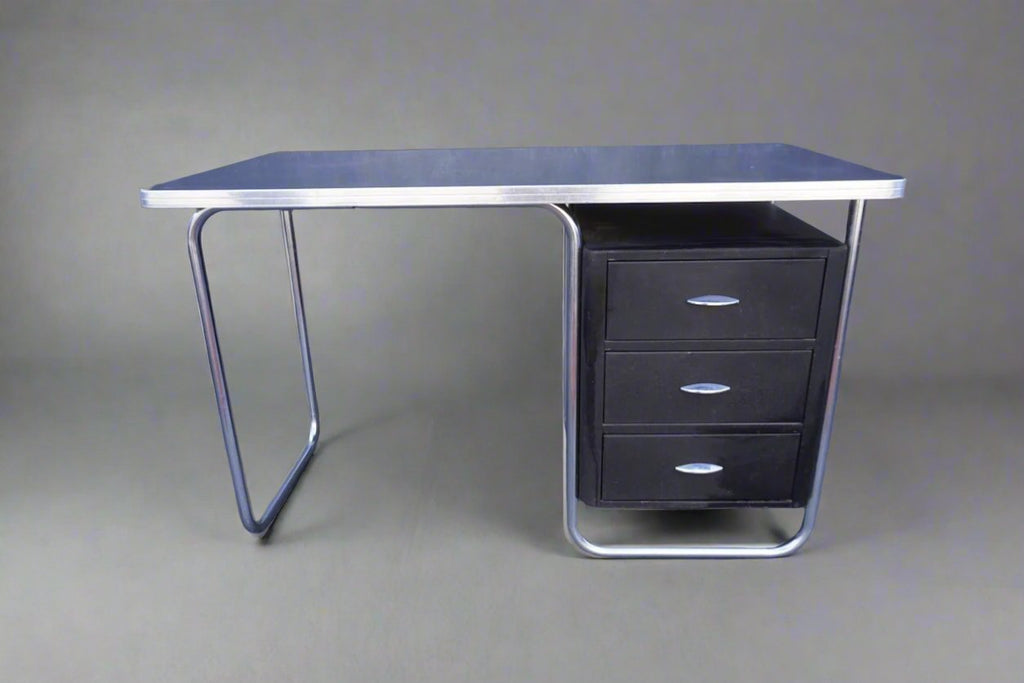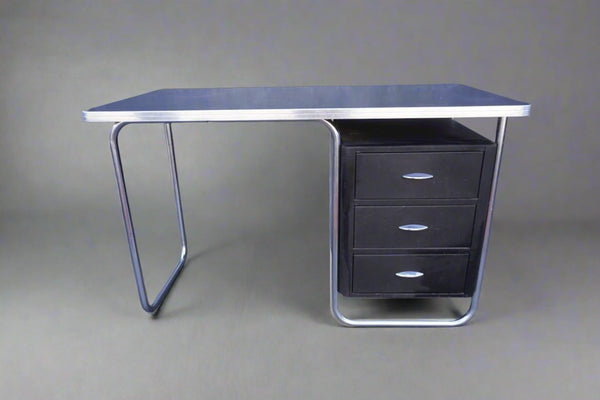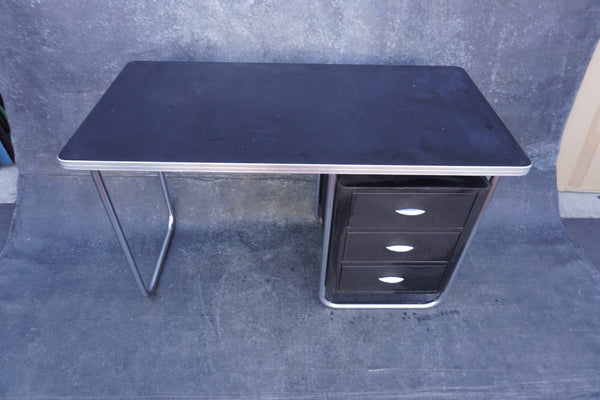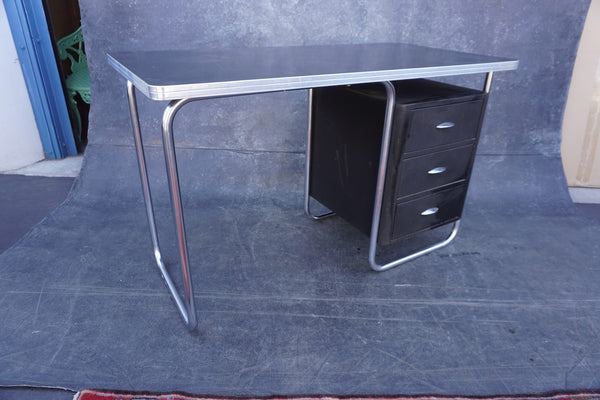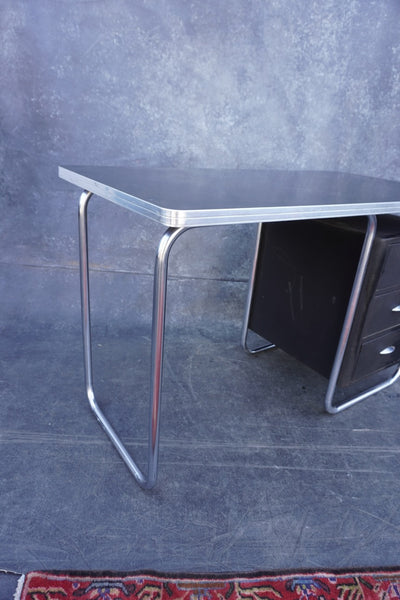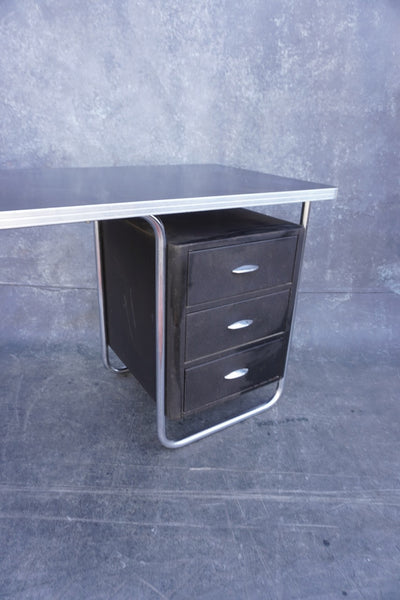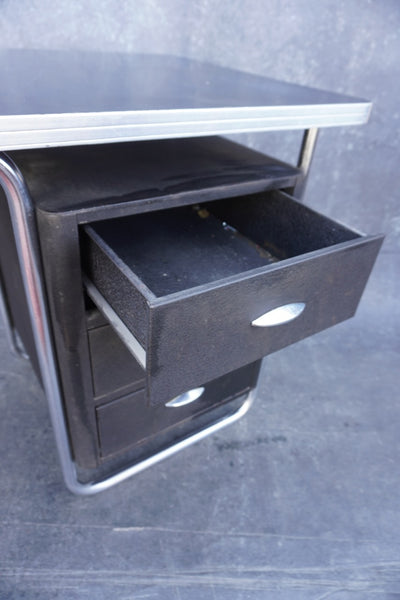Walter Dorwin Teague for Texaco Streamline Moderne Art Deco Desk F2595
Desk measures 48" x 30" x 24".
Teague's service stations for Texaco highlighted the metamorphosis of the gas station to become a roadside one-stop shop for much more than gasoline. As the Great Depression reshaped the country, and streamline modern took an evolutionary step in architecture past art deco ornamentation, new service stations took on contemporary streamlining pushed by Teague, Raymond Loewy, Norman Bel Geddes and Gilbert Rohde – key designers of modern America at the time. Embracing the International Style and cleaner lines professed by the Bauhaus, the widespread proliferation of the service station swiftly pushed forward the look of the country’s built environment. Teague was hired by Texaco in 1934 to redesign the identity of the company and its retail outlets – seeing thousands of the company’s clean, white, glass, stucco and enameled steel service stations built across the US, re-imagined what was early a dirty, greasy enterprise.
Contact us to arrange special shipping, local delivery, or pickup at the warehouse.
Walter Dorwin Teague (December 18, 1883 – December 5, 1960) was an American industrial designer, architect, illustrator, graphic designer, writer, and entrepreneur. Often referred to as the "Dean of Industrial Design", Teague pioneered in the establishment of industrial design as a profession in the US, along with Norman Bel Geddes, Raymond Loewy, Henry Dreyfuss and Joseph Sinel.
Regarded as a classicist and a traditionalist despite a later shift to modern tastes, Teague is recognized as a critical figure in the spread of mid-century modernism in America. He is widely known for his exhibition designs during the 1939-40 New York World's Fair, such as the Ford Building, and his iconic product and package designs, from Eastman Kodak's Bantam Special to the steel-legged Steinway piano.
A self-described late starter whose professional acclaim began as he approached age 50, Teague sought to create heirlooms out of mass-produced manufactured objects, and frequently cited beauty as "visible rightness". In 1926 Teague assembled an industrial design consultancy later known as Teague.

